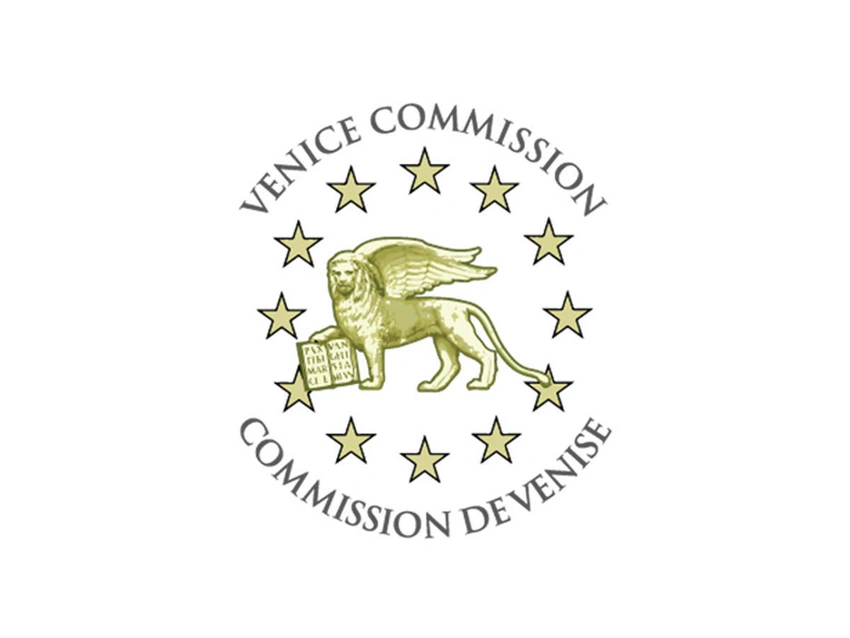Ragsana Karimova: "Venice Commission has taken into account some arguments of the Media Development Agency" - INTERVIEW
- 21 June, 2022
- 14:26

The Director of the Legal Department of the Media Development Agency, Ragsana Karimova, gave an interview to Report News Agency. She commented on the opinion of the Venice Commission on the Law of the Republic of Azerbaijan "On Media" announced on June 20.
-Was the opinion of the Venice Commission on the Law "On Media" unexpected for you, or did you predict such an approach?
-Immediately after the Venice Commission posted its opinion on the Law on Media on its official website yesterday, the Media Development Agency announced its position on the issue and clarified many points. We were, of course, familiar with the initial opinion. Despite the lack of time, we submitted our position on the issues raised in the opinion to the Venice Commission in writing on June 13. It should be noted that some of the theoretical and practical arguments put forward by the Agency are reflected in the final opinion. For example, in response to the Venice Commission, we mentioned a significant nuance that was "overlooked" when commenting on the requirements for journalists to be included in the Media Register. The register is voluntary, and any restrictions on journalists that are not included in the register are out of the question.
In addition, there is no article in the Law about any application to the Agency to act as a print media or online media entity. After this response, that part was removed from the opinion, and other parts were edited in a more balanced way. Or let's talk about the article that the disabled and partially disabled persons cannot be founders of and participants in a media entity. After we explained the scope of these people, the Venice Commission accepted the Media Development Agency's approach to this issue. Another point is related to the article in the Law on "Circumstances in which the dissemination of information, disclosure of the source of information is not allowed". After a detailed explanation by the Agency, the Commission's approach to these articles has changed somewhat.

-What other opinions of the Agency did the Venice Commission take into account?
- In its opinion, the Commission commented on Article 15.3 of the Law without assessing the content of Article 15.2. It is about disclosing the source of information by an editor or journalist. The Law stipulates that a source can be disclosed only to prevent grave crimes and by a court decision. In other cases, a journalist cannot be forced to reveal the source of information. Following this explanation, the final opinion referred to an article prohibiting the journalist from being forced to disclose the source of information. The Commission was informed that the accreditation of journalists and issuing a journalist's card are entirely different concepts and procedures. After that, the Commission changed the reference to accreditation in the opinion.
-So, did the Venice Commission accept the position and arguments of the MEDIA Agency at some points?
Yes, in its opinion, the Venice Commission did not discuss many articles of the Law and showed an approach consistent with the position of the Agency. We believe that this is the result of effective dialogue with international organizations.
- However, the opinion of the Venice Commission contains articles that the Commission does not support in the Law on Media. Which points in this document are of fundamental dissatisfaction?
- One of the main points of fundamental dissatisfaction is the approach to open calls for the violation of the territorial integrity of the country. According to the opinion, in the absence of an element of "violence", there can be calls against the territorial integrity of a state. But we can never accept this approach. Such an approach to a country that has faced occupation and terrorism for more than 30 years neither complies with the principles and norms of international law nor serves the interests of our country and people.
It should be especially noted that amid the recent socio-political and military situations in the world, the countries that are considered the cradle of democracy are taking up a position on this issue consistent with our views. In Europe itself, the restriction of information that threatens the security of the state and its citizens and the public interest is considered legitimate and justified. In such a case, it is incomprehensible that Azerbaijan is required to take a "liberal" approach to calls against territorial integrity.
One of the main points criticized in the opinion is related to the requirements for the media entity. For example, the article that does not allow previously convicted persons to be founders or participants in a media entity.
"Yes, we are talking about Article 26 of the Law. However, this article makes it clear that the "previously convicted persons" means, for example, persons convicted of grave crimes, as well as crimes against public morality, and not persons convicted of damaging a monument. The Criminal Code of Azerbaijan specifies this category of crimes - sexual violence, racial discrimination, etc. Unfortunately, despite repeated explanations, the article is still misinterpreted.

Regarding the requirements for media entities, we would also like to note that the Law does not rule out that media entities might be owned by a foreign entity and funded from abroad. In this case, only the share in the authorized capital is determined. When an entity informs the Agency about its intention to operate as a print media and online media, it is not permission but a declaration, and this is groundless to equate it with the procedure of a licence.
The Venice Commission's opinion hints that the Law restricts the notion of "journalist" and that the Law will not be enforced. What do you think about this?
-Unlike the repealed Law on Mass Media, the Law on Media refers to the international practice of the term "journalist" and approaches this activity from a broader perspective. Our goal is to protect the professional activities of Azerbaijani journalists from restrictions not only within the country but also abroad.
In general, the concept of "journalist" covers many areas of activity, including professional journalism. The current Law applies only to those who engage in journalistic activities at a professional level and for-profit. It does not apply to those who approach this activity at an "amateur" level. Because many normative legal acts in Azerbaijan guarantee the freedom of all citizens to search, obtain, transmit, prepare, and disseminate information, regardless of their profession and level of professionalism.
As for the opinion that the Law is not suitable for use, the Law came into force on February 8 this year and has been in force for about four months. During this time, the media community has witnessed that the Law does not impose any restrictions. On the contrary, in their activities, journalists have repeatedly referred to the defence mechanisms of the Law, articles on the prohibition of harassment and pressure on them, interference in their professional activities, protection of copyright, etc.
In a word, the claims that the Law, which has not imposed any restrictions so far, will be aimed at restricting the activities of media entities and journalists, rather than protecting them, are based not on legal arguments but on "inner belief" and some "mythological motive."
